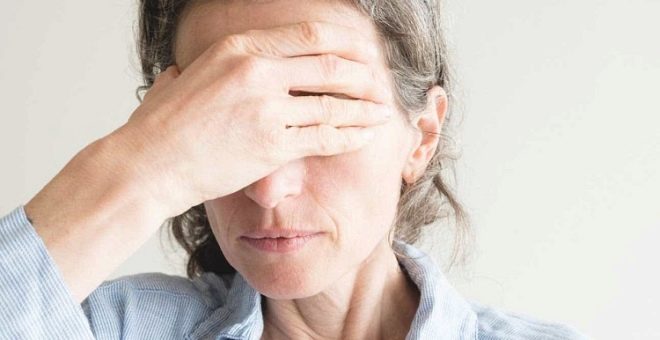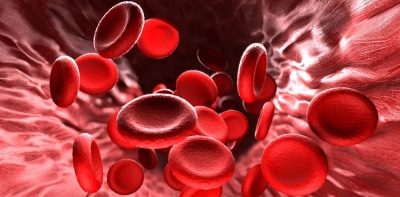Psychosomatics of anemia in children and adults
Anemia is widespread among people of all ages. And sometimes such a diagnosis becomes an unpleasant "surprise" - after all, nothing heralds a decrease in hemoglobin in the blood. More than others, parents of children and teenagers are perplexed, because the food in a child is normal, he does not suffer from bad habits, and a blood test during a scheduled visit to a children's clinic shows the presence of anemia.
In this article, we will look at what psychosomatic causes anemia may have and how to deal with them.
General information about the disease
Anemia is a condition in which a decrease in hemoglobin protein is detected in a person’s blood, whose task is to carry oxygen throughout the body. Often low hemoglobin is accompanied by a decrease in the number of red blood cells themselves - red blood cells.
Anemia can manifest pronounced pallor, rapid heartbeat, rapid breathing. A person with anemia gets tired faster, often suffers a breakdown even after a minor exercise, he may have complaints of headaches, a sensation of tinnitus.
There are many types of anemia, among them distinguish the main ones due to the development of the pathological condition:
- iron deficiency (with a lack of iron);
- aplastic (with a small amount of red blood cells produced by the bone marrow);
- hemolytic (with abnormal destruction of red blood cells);
- cell (hereditary);
- post-hemorrhagic (in the condition after heavy blood loss during surgery or injury);
- mixed (by several factors at the same time).
Among the most common and likely factors for the development of a pathological blood condition are such as malnutrition, vitamin and mineral deficiencies in the body, and intestinal problems in which iron absorption in the small intestine is insufficient or does not occur at all; depletion of the body, including the nervous.
Anemia most often suffer from pregnant women, as well as adolescents during the period of active growth.
There are several stages and degrees of severity. Normal hemoglobin values are 110-120 g / l in children, 130-160 g / l in men, 120-140 g / l in women who are not pregnant, and 110 g / l in pregnant women.
Psychosomatic causes
The psychosomatics of blood disorders is fairly simple. From the point of view of psychosomatic medicine, which studies not only physiology and anatomy, but also the psychological aspect of certain human pathologies, blood symbolizes joy. This constructive feeling improves blood circulation, a joyful person feels fresher, better. Blood constantly circulates through the network of blood vessels and delivers much-needed nutrients and oxygen to the cells of the body. If there are problems with blood, then there are problems with joy..
In addition, the blood symbolizes the genus, family, clan. AND problems with the circulatory system can talk about family problems, which deprive a person of joy.
Psychologists and psychoanalysts, communicating with patients with diagnosed anemia, concluded that people who for some reason do not live to the full extent suffer from anemia, do not breathe deeply, often deny themselves everything, sacrifice themselves. Of course, sometimes they do it for noble reasons: for the benefit of others, usually blood relatives, but the result is still sad - a person lives, does something for someone, diligently hides his own needs and desires and at the same time sincerely finds his life joyless , devoid of charm and pleasant events.
Often, typical patients with anemia postpone their aspirations, goals, and desires “for later”, in most cases they are aware that they most likely will not be able to realize them.
A good example is a woman who gives everything to children, her husband, works, leads the household, denies herself buying things, cosmetics, jewelry, and sometimes decent food, living according to the principle “all the best - children.” There are such men, but rarely. And because anemia, which confirms the medical statistics, often found still in women. Hence, it is easy to trace the origin of anemia of pregnant women - while waiting for a child, women forbid some “joys” to themselves, for example, a glass of wine, a cake; they constantly remember that they eat and drink not only for themselves, but also for the child. Eventually some bans, if there are many, cause an anemic condition.
Anemia in adolescents and children is closely associated with a lack of positive emotions, lack of confidence in themselves, their strength, and sometimes in adults who raise a child. A child who considers himself to be bad because he is often scolded, tied off, made remarks, is more likely to suffer from anemia.
Opinion researchers
Psychosomat and writer Louise Hay She noted that the absence of joy in a particular situation and the absence of joy in the whole life, as a character trait, are different things. Anyone can be upset. But the optimist will quickly take himself in hand and start to rejoice again, at least in small things. In such people, psychosomatic anemia usually does not develop. BUT people who lose their ability to rejoice are subject to anemia, even with joyful events they do not experience that adrenaline rush and happiness, as before - it’s easier out of habit to suffer.
Canadian researcher and psychologist Liz Burbo notes that a person with anemia not only loses joy, but almost loses desires.. If you ask him what he would like the most, he usually finds it difficult to answer. This is a rather dull type of people prone to depression.
Russian psychologist Elena Guskova argues that the causes of childhood anemia should always look for the parental influence factor: usually the child devalues himself, does not love himself and considers himself bad because of too strict or biased attitude on the part of adults - mom, dad, grandmother. Teenagers with psychosomatic anemia claim that they have no confidence in the family, no support from their own people, but there is a deep confidence that it is impossible to solve their problems on their own. This is how an internal conflict develops, which, on the one hand, encourages a teenager to get close to his family in order to gain support; on the other hand, there is a fear of being rejected, misunderstood.
Treatment
Reduced hemoglobin needs not only medication, but also a psychological correction of the patient’s condition, no matter how old he is. Even pregnant women, who are all told to say that it is normal when the hemoglobin decreases in anticipation of a child, you should visit a psychologist in the antenatal clinic to try to understand your true desires and ways to satisfy them.
Until a person begins to understand that there is joy in everything - in every day of its existence, in every trifle, he will be satisfied with only a temporary effect from taking medications, and then with a doomed look to state that “hemoglobin has decreased again and it’s time to go again to the pharmacy for medicines and to the store for pomegranate juice and buckwheat to raise the level of hemoglobin. "
If you or your child have anemia, the problem is completely obvious: you need to bring joy to life. It's not so easy to do, but nothing is impossible. Both you and the child should be taught to see the good and joyful, pay attention to how gently the sun is shining today, how good it is to do - Build together a bird feeder, plant a tree in the country house and watch it grow, measure it. There is joy in everything: in the pie you baked, in home tea drinking. Remember more often that there are people on the planet who are deprived of the opportunity to receive the kind of joy that is available to you right now. No need to go far behind her.
The hardest thing to bring back the joy of adolescents, and all psychotherapists know about it. But here no need to go out of their way to buy a child that phone or tablet of which he dreams, to go on a journey with him. Sons and daughters who entered puberty cannot enjoy life without a sense of support unless they have a “sense of shoulder” with their parents. Make the child listened, understood, do not judge. Together with faith in you, that childish joy that was before will return.
















